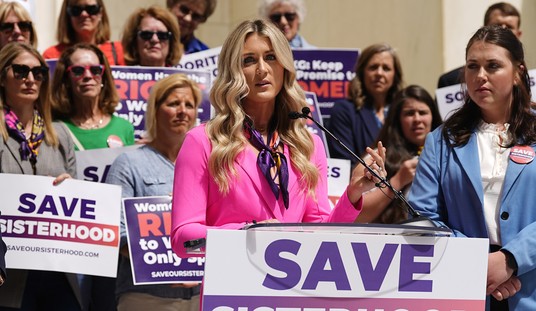Grover Norquist of Americans for Tax Reform does not think much of the Heritage Foundation’s recent projection of the total cost of amnesty. Heritage figured a taxpayer cost of about $6 trillion over the next 50 years.
Norquist takes many issues with this figure, including some that aren’t really problems with the report itself – for example, he criticizes the way other people have presented its conclusions when describing it, and unfairly asserts that the time frame of 50 years was somehow hidden by the authors. In truth, the Heritage researchers were very clear about the time frame, and about why they chose it. Among the reasons was their understanding that Congressional Budget Office projections are capped at a relatively short 10 years, and politicians have grown very adept at hiding big costs just outside that ten-year window. And it’s grimly humorous for Norquist to castigate Heritage for not reviewing some mythical fixed Gang of Eight bill, when the bill has mutated about a dozen times since the Heritage report was released, and is still changing in significant ways at the very hour of this writing.
One interesting point of principle raised by Norquist is his accusation that the report was “a shift from 30 years of Heritage’s traditional support for the Ronald Reagan, Jack Kemp, Milton Friedman understanding that people are an asset, not a liability… that more workers and consumers makes America stronger, not weaker as the labor unions, the zero population growthers and the long dead and discredited economist Malthus argued.”
I happen to share the belief that human beings can and should be viewed as assets. But we most certainly do not currently live in a system that treats them as such. To be blunt, Norquist is borderline delusional to pretend otherwise.
If these 12 million or so illegal immigrants are such a rich human resource, why didn’t they turn Mexico into a mighty citadel of prosperity when they lived there? Norquist angrily denounces the notion it might be an inherent deficiency in the immigrant workers themselves, going so far as to count coup on the resignation of Heritage co-author Jason Richwine, who wrote an earlier paper on IQ differences between immigrant groups (for which he was awarded a PhD by Harvard.)
The problem must therefore be social, political, or environmental – a question of either cultural preferences, government policies, and/or insufficient natural resources. And there must be a problem, or else this large number of people would not illegally cross the border into the United States. We should ask if conditions that will cause problems for this group still exist on the other side of the border, and whether granting them citizenship will cause those conditions to dissipate.
At the most basic level, we might say that increasing human population shouldn’t be an economic liability until it has completely overwhelmed available resources – a point America is nowhere near reaching, despite decades of doomsday warnings to the contrary, although government policies make those resources more difficult to exploit.
Given adequate resources, people are both producers and consumers. They work, and they purchase. Their demands create market opportunities, which lead to jobs. 12 million new citizens should bring plenty of profitable opportunities to meet their demands, as well as entrepreneurs who will pursue those opportunities, and workers for them to hire.
But the United States is not currently a country that encourages the pursuit of opportunity – not with the vigor necessary to assimilate millions of new citizens. Roadblocks to investment and development are numerous. The cost of labor is artificially inflated through mandates. Extensive welfare benefits put a heavy public price tag on each individual. The State’s hunger for revenue to pay for these benefits, along with many other items on its agenda, drains a huge amount of capital from the free market.
Norquist is serenely confident that we will be able to build a capitalist system capable of handling a massive influx of new citizens, in a very short window of time: “We can and will reform entitlement spending and welfare spending. The legislation, the Ryan plan, is written down and has passed the Republican House three times. We need to pass school choice in all 50 states. Conservatives should focus on winning the Senate and White House to pass Ryan. Getting distracted by hundred year old and discredited arguments against immigration misdirects and weakens our drive to reduce the cost of government.”
This comes near the end of the very same article in which Norquist hammers the Heritage Foundation for making unrealistic assumptions about the future. But if you just assume that Republicans can dismantle Food Stamp Nation, make Medicare solvent, and balance the budget in less than ten years, mass amnesty looks much less expensive!
The Ryan plan can pass the House a thousand times, and it won’t matter because death lurks in Harry Reid’s Senate, or under Barack Obama’s veto pen. Also, that huge body of new voters he’s dying to give amnesty are dedicated opponents of all the reforms he’s talking about. Hispanic voters love Big Government. They say it loud and clear, every time a pollster asks them. Democrats will be eager to cater to this desire, and many Republicans will try to ante up for their affections. Just today, House Minority Leader Nancy Pelosi was pushing to grant illegal aliens swift access to ObamaCare, despite earlier promises that her Party would not make such demands.
Big Government is the primary force behind transforming people at the lower end of the skill and income bracket into liabilities instead of assets. Norquist is right to remind us that conservatives view people as both the creators and pursuers of opportunity, but socialism is entirely premised on viewing them as helpless victims who cannot survive without the expensive assistance of the maternal State. And socialists encourage their constituents to see themselves that way. For all the criticism of insufficient “dynamic scoring” in the Heritage analysis, that’s one dynamic that amnesty enthusiasts don’t want to consider.
Leaving aside the ethics of rewarding those who violate our borders, and the dangers of creating incentives for even more illegal immigrants to do so, the economic question of whether those people will add red or black ink to America’s ledgers is interesting. Although the exact numbers are debatable, I have yet to see a serious challenge to Heritage’s contention that amnestied illegals will produce red ink for generations to come, consuming more in government spending than they provide in tax revenue. We could change that equation by radically restructuring our government, but how realistic is that, within the span of a single decade? Perhaps in addition to border security first, we should write our “comprehensive immigration reform” to stipulate capitalism first. Now that would be a comprehensive reform.














Join the conversation as a VIP Member